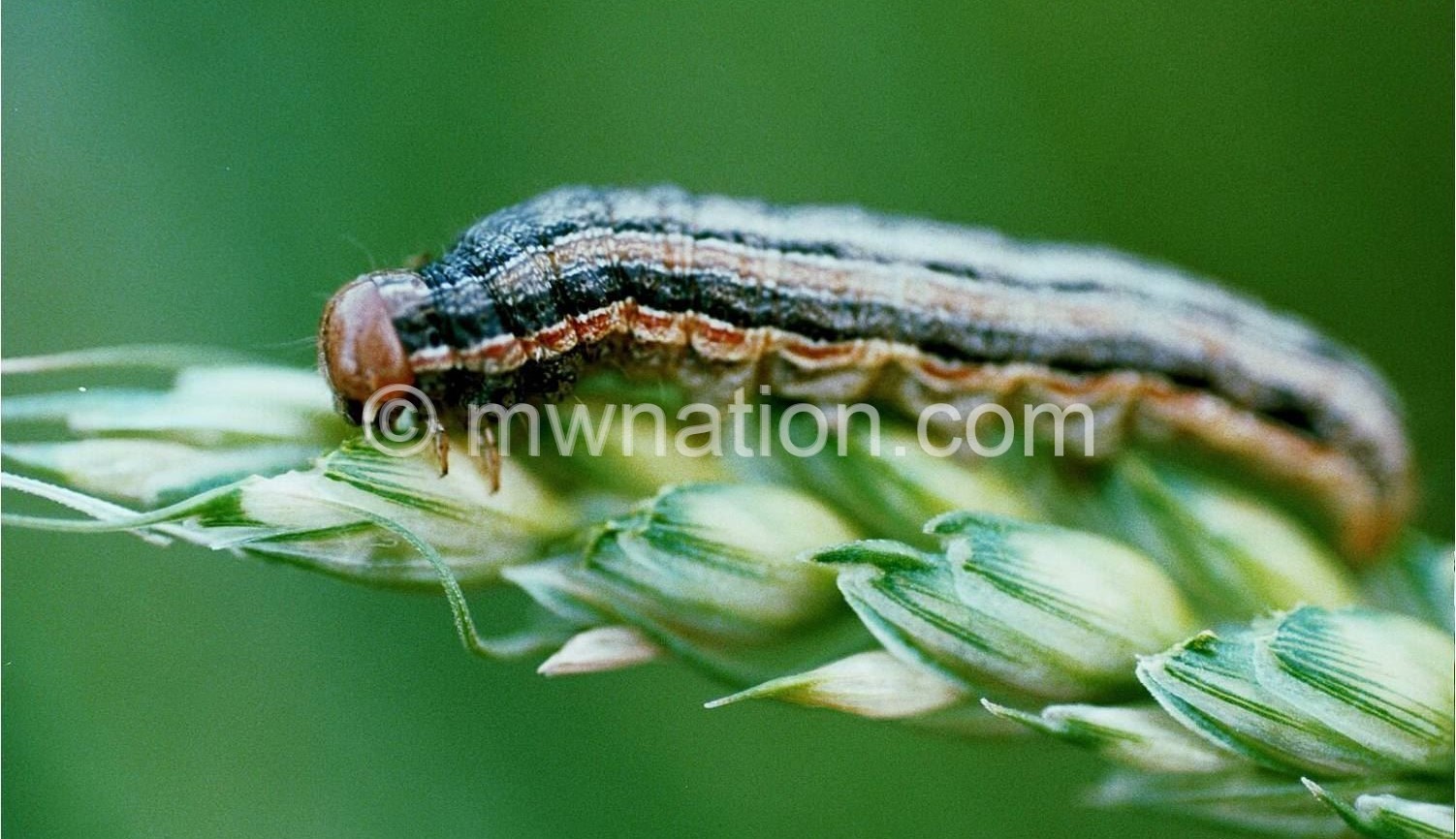High cost of worm infestation
Forty-six-year-old Emma Luna and her son Enock travelled from their village to Kamuzu Bridge Market at Salima Boma in search of potential buyers for 10 out of 12 bags of maize the family harvested in the 2016/17 farming season.
She wanted to raise money for Enock’s school fees and for buying pesticides for a winter maize crop.
“I have no choice but to sell the maize. Apart from the fees, I have to buy pesticides to save our winter crop from fall army worm attack,” says Luna from Chembe Village, Traditional Authority (T/A) Pemba in Salima.
Fall army worm is an invasive Latin American species which is harder to detect and eradicate because of its resistance to commonly used pest control chemicals.
The outbreak of this pest across many countries in southern and eastern Africa has not spared Salima and other districts in the country.
Luna’s two-hectare (ha) piece of irrigated maize is at high risk of the worm attack and she needs not less than K9 000 to keep the worm under control.
She does not want to lose out again as she did with the rain-fed farming in the just ended season.
“I only harvested 12 bags of maize instead of the usual 35 bags from the same piece of land,” says Luna.
She adds that the low crop yield resulted in low income, a development which made her fail to realise K7 000 for her 18-year-old son’s school fees at Maganga Community Day Secondary School (CDSS).
That is the cost of the worm, which was first noticed in the district in December 2016.
Salima Agricultural Development Division (SADD)programme manager Richard Mgomezulu says out of the districts [Salima and Nkhotakota] in the division, Salima was the worst hit.
“The worm attacked 600 hectares of maize field out of the total 854. It was severe in some areas and mild in the other,” he says.
Although crop yield for Salima has increased from 121 000 metric tonnes (MT) last year to 145 000 MT this year, Mgomezulu feels they could have harvested more if it were not for the worm attack.
And there are fears that the worm may affect production from winter cropping, which adds almost 10 to 12 percent of the country’s maize yield, according to Mgomezulu.
“The worm is now affecting irrigated maize which is leaving some families with no option but to uproot the crop,” he says.
But what should be done to save maize crop from this deadly worm?
“Farmers are advised to start spraying the maize as soon as the plant emerges from the ground,” says Mgomezulu.
Spraying of a pesticide (Cypermetherine) must be done every week if the worm is to be wiped out from a field.
It is for this reason that people like Luna are choosing to let go of the little maize realised from last rainy season and save their winter crop.
The current fall army worm situation is discouraging some farmers from irrigation farming, according to Luna.
“Some are yet to plant their crop. They are afraid of the worm considering that saving the crop means intense application of pesticide, which is somehow expensive,” she says.
But for her, she still has to strive for maize production to raise income for her son’s school fees. It is a big gamble.
In April this year, a report by Reuters stated that around 330 000 hectares of staple crops, especially maize had been affected by the worm in six African countries including Malawi.
The worm’s resistance to commonly used pest control chemicals is still a cause for worry, especially that no permanent solution has been found to eradicate the pest.
But measures are being taken to keep the fall army worm in check.
Firstly, the Ministry of Agriculture, Irrigation and Water Development, through the Department of Agriculture Research (Dars), is undertaking studies to find viable solutions to the infestation, according to director of extension services Dr. Albert Changaya.
The ministry is also promoting some best practices that have proven beneficial such as planting early, using early maturing crops and screening of some varieties to establish level of crop resistance to diseases.
“This integrated pest management should help in curbing the population growth of the worm,” Dr. Changaya says.
While these measures are being taken to solve the fall army worm puzzle, some desperate farmers who cannot afford pesticides are opting for non-formal treatments like the use of neem leaves and washing powder.
As the search for permanent solutions to this infestation continues, Emma Luna and the rest of the farmers are hoping the spate of the worm does not extend into the next farming season.





